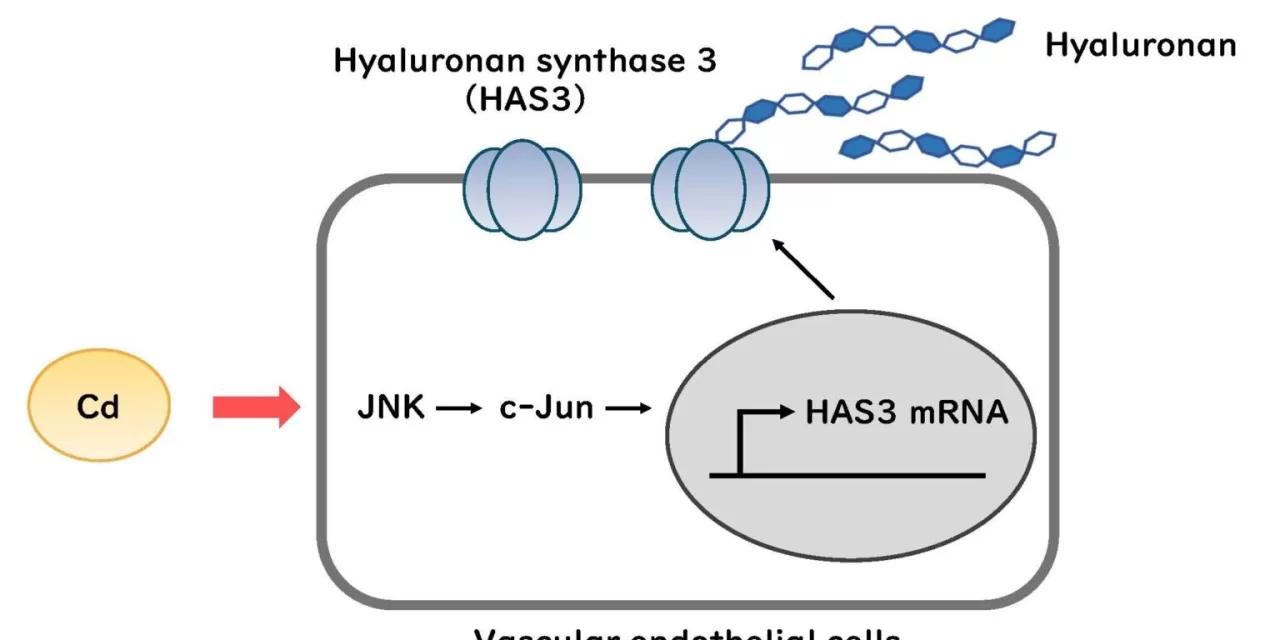A groundbreaking study has uncovered how cadmium, a toxic heavy metal, contributes to vascular damage by increasing the synthesis of hyaluronan in endothelial cells. The research, led by Ms. Misaki Shirai (JSPS Research Fellow), Dr. Takato Hara, and Dr. Chika Yamamoto from the Department of Environmental Health Science, Faculty of Pharmaceutical Sciences at Toho University, provides fresh insights into the mechanisms through which cadmium accelerates the progression of atherosclerosis.
Cadmium’s Role in Vascular Damage
Cadmium is infamous in Japan as the causative agent of Itai-itai disease, a severe skeletal disorder linked to chronic exposure to the metal. Epidemiological studies have long suggested that cadmium is a significant risk factor for atherosclerosis, a condition characterized by the thickening and hardening of the arteries due to plaque buildup. This latest research clarifies how cadmium contributes to vascular inflammation and damage.
Key Findings of the Study
The research team has identified several critical mechanisms by which cadmium affects vascular endothelial cells:
- Increased Hyaluronan Synthesis: Exposure to cadmium leads to a significant rise in hyaluronan production in vascular endothelial cells.
- HAS3 Induction: This increase is mediated by the induction of hyaluronan synthase 3 (HAS3) expression, an enzyme responsible for hyaluronan synthesis.
- JNK–c-Jun Pathway Activation: The team discovered that the upregulation of HAS3 is driven by the activation of the JNK–c-Jun pathway, a key signaling cascade involved in cellular stress responses.
- Accelerated Atherosclerosis Progression: Disruption in HAS3 expression balance due to cadmium exposure may hasten the development of inflammatory vascular diseases, including atherosclerosis.
Implications and Future Research
These findings highlight the need for stricter regulations and preventive measures to limit cadmium exposure, particularly in regions where industrial pollution contributes to environmental contamination. The research provides a foundation for future studies exploring potential therapeutic interventions to counteract cadmium-induced vascular damage.
The study has been published online in the journal Toxicology under the title Cadmium promotes hyaluronan synthesis by inducing hyaluronan synthase 3 expression in cultured vascular endothelial cells via the c-Jun N-terminal kinase–c-Jun pathway by Misaki Shirai et al. (2025). DOI: 10.1016/j.tox.2025.154062.
Disclaimer: This article summarizes recent scientific research and is intended for informational purposes only. The findings should not be considered as medical advice. Readers are encouraged to consult healthcare professionals for concerns regarding toxic metal exposure and cardiovascular health.












